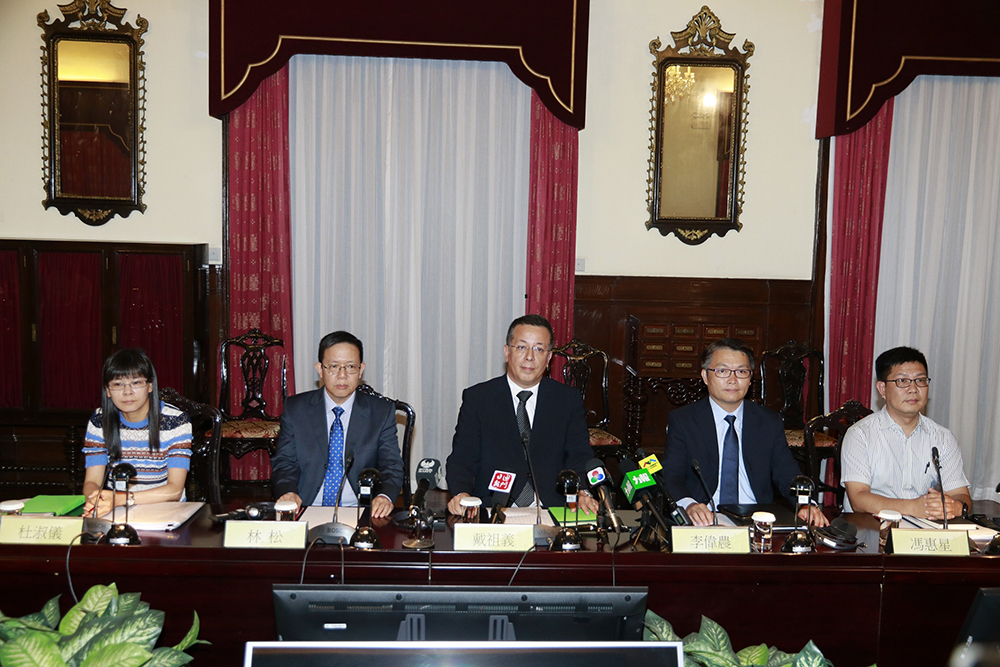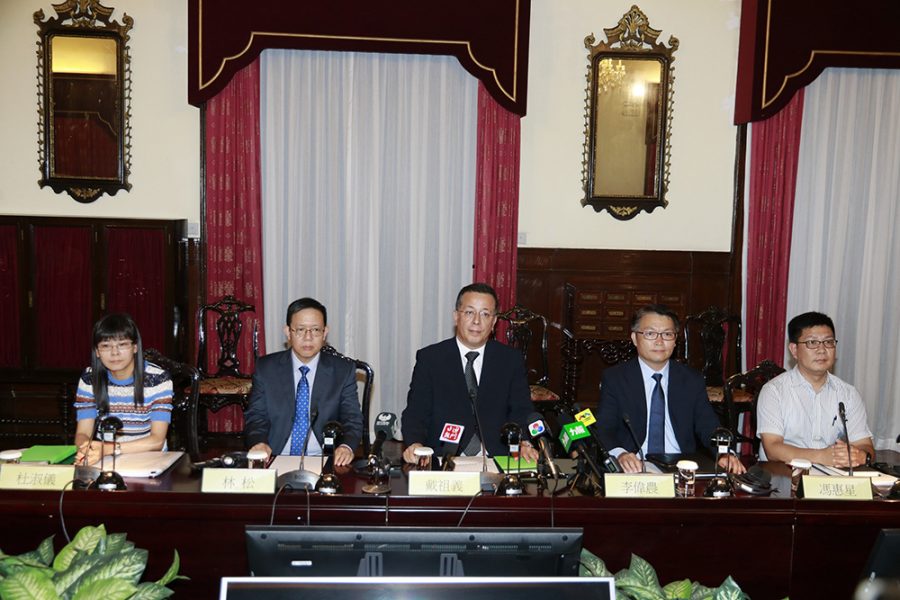The government abruptly announced Tuesday that it has decided to halt its plan to build Macau’s first crematorium at Taipa Sa Kong Municipal Cemetery, following strong opposition to the project by residents living nearby.
The Civic and Municipal Affairs Bureau (IACM) made the announcement during a hastily convened press conference at its headquarters in Avenida de Almeida Ribeiro .
The bureau also said that it would continue to study alternative locations suitable for a crematorium.
During the press conference, IACM President Jose Fonseca Tavares said his bureau had decided to halt the crematorium plan after receiving “a large number of” opinions raised in civil society opposing the project.
Tavares insisted, however, that there is a need for Macau to have a crematorium as demand for cremation has been increasing. He also said that the need to cremate corpses in the case of a large outbreak of a fatally infectious disease was even more important.
Tavares also said that his bureau planned to propose an amendment bill to remove the current legal requirement that any crematorium must be located in a cemetery, so that in the future the government could have more options to find a suitable location for a crematorium.
The bureau confirmed in a statement last Friday that it was proposing Taipa Sa Kong Municipal Cemetery as the location for building Macau’s first crematorium.
Last Friday’s statement said that since last year the bureau had been studying the feasibility of building a crematorium at one of the city’s public cemeteries, adding that it considered the Sa Kong graveyard in Taipa as the most suitable location for the future crematorium after taking various factors into consideration. The statement underlined that the bureau was open to listen to public opinion about the location of the crematorium, particularly concerning opinions by residents living near the Sa Kong cemetery.
The government’s plan to build Macau’s first crematorium was first revealed in Chief Executive Fernando Chui Sai On’s 2018 Policy Address in November last year. Then during a plenary session of the legislature later that month, Tavares told lawmakers that his bureau had decided on the location of Macau’s first crematorium, adding that the planned crematorium would be located in one of the city’s public cemeteries. He did not elaborate further.
According to the bureau’s website, there are six public cemeteries in the city – two on the peninsula and two in Taipa and Coloane each. There are also a number of privately-owned graveyards.
Taipa Sa Kong Municipal Cemetery is located near the entrance to the Macau-Taipa Friendship Bridge at the bottom of Big Taipa Hill. Its entrance is in Estrada Almirante Magalhães Correia.
A number of private residential estates, the large Lago public housing estate, as well as a private school – the Macau Anglican College (MAC) – are all located near the Sa Kong cemetery.
The government previously had declined to confirm where the location of the future crematorium would be, merely saying that, according to the law, crematoria must be located in the city’s cemeteries.
It was not until the Lands, Public Works and Transport Bureau (DSSOPT) released the proposed legal development conditions for a plot where Taipa Sa Kong Municipal Cemetery is located, on its website earlier this month, that the public could finally figure out that Macau’s first crematorium might be built there.
Last Friday’s IACM statement also said that there was an elevation acting as a “natural barrier” separating the bureau’s proposed exact location of the crematorium at Taipa Sa Kong Municipal Cemetery from residential buildings in the area. The statement also reassured the public that the specifications of the future crematorium would be of a high standard.
According to The Macau Post Daily during Tuesday’s press conference, Tavares said that more than 2,100 people passed away last year and that 75 percent of the bodies were taken to the mainland for cremation. The remainder were buried in Macau.
Tavares said that in addition to Macau’s rising demand for cremation, a crematorium was needed to dispose of bodies in case of a large-scale infectious disease outbreak. He said that remains of those who died of an infectious disease are not allowed to be transported to the mainland for cremation, so that such cadavers could only be disposed of in Macau.
Tavares said that if there was a major infectious disease outbreak resulting in a large number of fatalities, the available burial places would be insufficient to meet demand, adding that traditional burials wouldn’t be beneficial to stopping an infectious disease from spreading. He said that Macau’s civil society would therefore have to bear the risk of suspending the city’s first crematorium project.
Tavares also said he felt disappointment that his bureau had to halt its plan to build a crematorium at the Sa Kong cemetery.
Referring to his bureau’s plan to propose amendments to exiting legislation in order to remove the legal requirement that crematoria must be located in the city’s cemeteries, Tavares said that his bureau would have to discuss the matter with the Legal Affairs Bureau (DSAJ), adding that his bureau did not have a timetable as to when the drafting of such an amendment bill will be completed.
Tavares also said that his bureau would not consider choosing Taipa Sa Kong Municipal Cemetery as the location of Macau’s first crematorium in the future.






